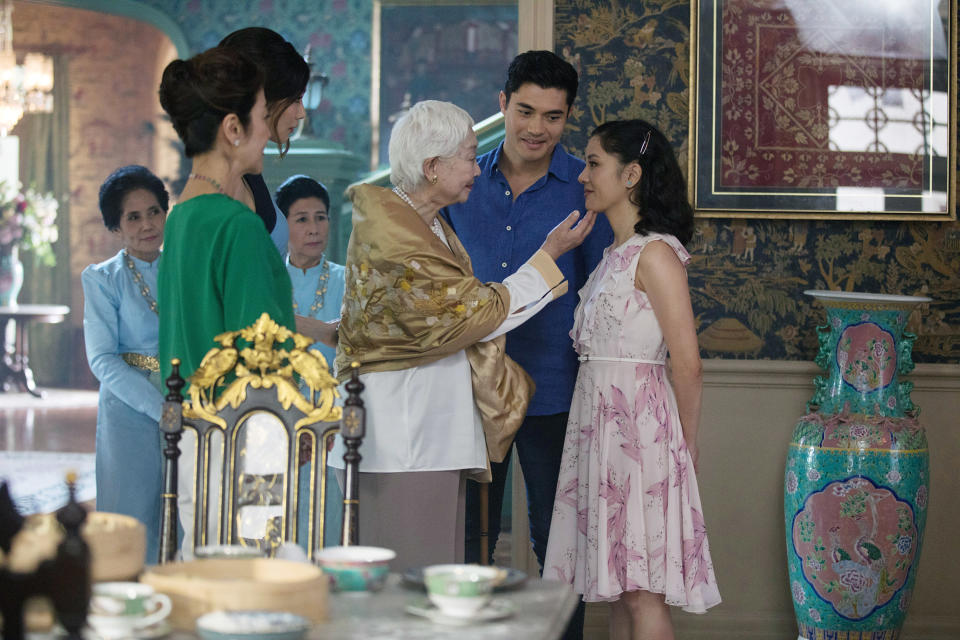Hollywood execs didn't want 'Crazy Rich Asians' to be called 'Crazy Rich Asians' and other things you didn't know about hit movie
Twenty-five years after the release of The Joy Luck Club, Hollywood finally has delivered another high-profile motion picture with an all-Asian cast, in the form of Crazy Rich Asians. The romantic comedy, which is projected to earn more than $30 million in its opening weekend, was adapted from the hit 2013 novel of the same name by author Kevin Kwan.
But translating books to movies is often a dicey process, and as director Jon M. Chu explained to Yahoo Entertainment, his film had to endure alterations, deleted scenes, and some just plain awful advice before hitting theaters.
Chu was told he should change the title and that he would never be able to find an Asian cast
Considering Hollywood’s historic problems dealing with race and gender, its “conventional wisdom” should be taken with a grain of salt. And that’s how Chu and his team dealt with some questionable notes from Tinseltown bigwigs.
Before selling the novel’s rights, Kwan was told by one producer that the role of Rachel Chu, played by Constance Wu, would have to be played by a white woman. And the director said he was informed that he wouldn’t be able to find enough actors to fill the ensemble.
“‘You’re not going to find an Asian cast that can step up to the plate for this,’” Chu recalled being told. “I thought that was ridiculous. I just knew that we had to look harder because there weren’t systems built for people to find roles like these. … We just had to go one layer deeper, and then we found all these talented people and they’re ready. They’ve done the work.”
And then there was the movie’s title.
“People wanted to change the name of the movie. But the book is called Crazy Rich Asians. It’s a provocative title. I think it creates conversation, which I think is good.”

There was a debate over whether the film should reference Donald Trump
In the book when Rachel (Wu) visits Peik Lin Goh (Awkwafina), she is greeted by several dogs. One of those dogs is named after Donald Trump. However, in the movie adaptation, the only reference to Trump comes via Peik Lin when describing the inspiration for her home’s interior decorating. Of course, the book was written in 2013 before Trump had mounted his successful campaign. Chu couldn’t remember why they changed the joke, but did say the filmmakers questioned mentioning Trump at all.
“I think we just chose the right description for [the Goh home’s design] and then all the sudden he’s running for president, and all the sudden he becomes the president,” said Chu. “I think that’s all coincidence. There was a moment where we were like, ‘Should we even put this Trump joke in there?’ or ‘How far do you go with it?’ But it plays because it looks like his apartment.
Scenes featuring a key character were cut because test audiences didn’t like his antics
As readers of the novel know, Bernard Tai acts in reprehensible ways and is generally a loathsome character. The film adaptation, however, portrays him in more harmlessly thanks to Jimmy O. Yang’s inherent likability. However, Chu said part of the reason why his Bernard comes across more positively is because of some strategic cuts.
“Jimmy, he went hard at it but we had to cut out a lot because a movie like this, a female-driven [film where the women are] finding their own place, we had to be careful with these other characters [to avoid spreading] an other idea at the same time,” Chu shared. “So his stuff got a little over the top, a little crazy. When we showed it to test audiences, you could feel it felt awkward some times.”
Watch: Antonio Banderas on how he flipped the script on Hollywood’s conventional wisdom with Mask of Zorro:
Read more from Yahoo Entertainment:

